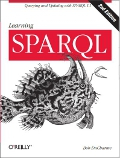As the third part of my series on writing about software, I'm writing about overly used words to avoid because they're nearly meaningless. For a start, read George Orwell's essay Politics and the English Language. The problem he speaks of, in which people use bigger words than they need to because they think that it makes them sound well-informed and important, is particularly endemic to the tech world, and especially acute among the marketing and sales people in all but the highest levels of the tech world. To quote the essay,
As soon as certain topics are raised, the concrete melts into the abstract and no one seems able to think of turns of speech that are not hackneyed: prose consists less and less of words chosen for the sake of their meaning, and more and more of phrases tacked together like the sections of a prefabricated henhouse.
Anyone up for some enterprise-wide world-class functionality? "Functionality", the "f" word, is my least favorite of all popular words in the tech world; I have never used it, except as a joke, since I began documenting software in 1989. (By "f word", I didn't mean "fuck", a concise, punchy old Anglo Saxon word with many layers of meaning that nevertheless is only rarely appropriate when discussing tech issues.) Take a noun, add a suffix to make it an adjective, than add another suffix to make it a bigger noun, and it sounds more important, right? Wrong. Saying that release 3.0 is better than release 2.2 because it has "more functionality" is worthless; saying that release 3.0 has more features than release 2.2 is less ridiculous, but still says practically nothing—an upgrade has more features by definition. Saying "the upgrade has more features" just to lengthen the bulleted list of improvements in 3.0 is meaningless padding.
The many ways of claiming that a product is good tell the reader just as much as telling them that an upgrade does more than the previous release: it tells them nothing. A former co-worker at Moody's Investors Service who had once done software marketing told me that at the time he had a sign over his desk saying "Don't Say 'powerful'". I have been guilty of this myself, but it's great advice. Saying that a program is good carries no information unless you qualify as a disinterested observer. If someone from Apple says that the latest iPod variation is good, that means nothing. If Walt Mossberger says that it's good, that means something. Of course, people selling software rarely use the word "good"; that would be too simple. They'll say that it's world-class, best-of breed, next-generation, enhanced, value-added, game-changing, and especially, powerful, but they're all the same thing: they say that something is good, and as someone with a vested interest in the software's success, you're obligated to show that it's good, to prove why it's good, or you're wasting the reader's time.
When tempted to use the "f" word, finding a superior alternative is not always as easy as just saying "more features", but as Orwell writes, "By using stale metaphors, similes, and idioms, you save much mental effort, at the cost of leaving your meaning vague, not only for your reader but for yourself". Some words that fail in their attempt to sound impressive are much easier to replace. Instead of "utilize", say "use". Instead of "necessitate", say "require". Instead of "facilitate", say "ease" (or, if you're talking about a meeting, say "run"). Instead of "heterogeneous", say "varied"; instead of "orthogonal", say "different", unless you're describing lines that form right angles or a specific kind of geometrical projection.
The "f" word also demonstrates a clue to watch for in avoiding bad tech words: too many suffixes. As I've quoted Orwell saying before, "Never use a long word where a short one will do". When you see the words connectivity, utilization, orthogonality, or productionizing, you can't just chop off the suffixes and move on in your writing, but the presence of all those suffixes should make you stop and think: is there a shorter word that can replace this entire word? It may take more than three or four seconds of thought to find that word, but if more than three or four people will be reading your sentence, you owe it to them.
![[technobabble cover]](http://images.amazon.com/images/P/0262521822.01._BO2,-64_AA240_SH20_SCLZZZZZZZ_.jpg)
As the title of Orwell's essay tells us, he feels that political discussion is especially prone to to the use of lazy, trite phrases. Technical discussion is even worse, because new terms are always cropping up and because of several issues common to marketing and sales people: they want to sound up-to-date, they don't completely understand the technology they're trying to sell, and they think that vagueness broadens the range of products and services that they might sell. In the early nineties I noticed that IBM had stopped describing their central hardware products as "computers" and instead started referring to them as "solutions". For example, instead of the AS/400 being a "minicomputer", it was a "midrange solution". Selling a "solution" implies the selling of products plus the associated services (something IBM got good at long before electronic computers were invented) but it always amazes me how many tech vendors think that being vague will help them to sell more.
Sometimes misuse of a technical term can drain it of its meaning. When a technology becomes hot, marketing and sales people misuse it to associate their products with it whether the products have earned this association or not, and words with specific meanings can lose those meanings. Fuzzy logic started off as a branch of set theory; now it means "vague reasoning". "Artificial Intelligence" started off referring to a set of technologies that used specific tools to implement symbolic logic; the term "AI" got so overused that it became tainted, and semantic web advocates find themselves fighting off the associations with AI to avoid the taint. This loss of a technical term's meaning can be temporary, which happened to "object-oriented" in the early nineties—I was told more than once that a system was object-oriented because an interface that consisted of clicking and dragging icons meant that I was "treating everything as an object". Modern discussions of object-orientation seem back on track, probably because it's not as hot as it used to be.
An interesting 1991 book that attempted to address this vocabulary issue was Technobabble by John A. Barry. It's a bit dated now, but it provides good advice on avoiding bad technical jargon as well as other hints that can improve technical writing, such as how to use more of the active and less of the passive voice. The Buzzkiller weblog ("A few journalists trying to stop a few thousand buzzwords. Crusading writers from Forbes, Wired and elsewhere do their best to make the tech world safe for English majors"), while only rarely updated, also has good advice and is often hilarious.
Earlier, I mentioned that this vocabulary problem is less of a problem at the highest levels of the tech world. I was thinking that companies with a bigger budget have slicker, more talented people doing the writing, but I just looked at oracle.com and the first sentence that I saw at the top was "Comprehensive customer relationship management solution brings enterprise-class functionality to customers of all sizes". Oh well.


Good post! Reading the orwell essay I found his quote from ecclesiastes much easier to read in the "translated" version - i sign that it's too late for me, surely.